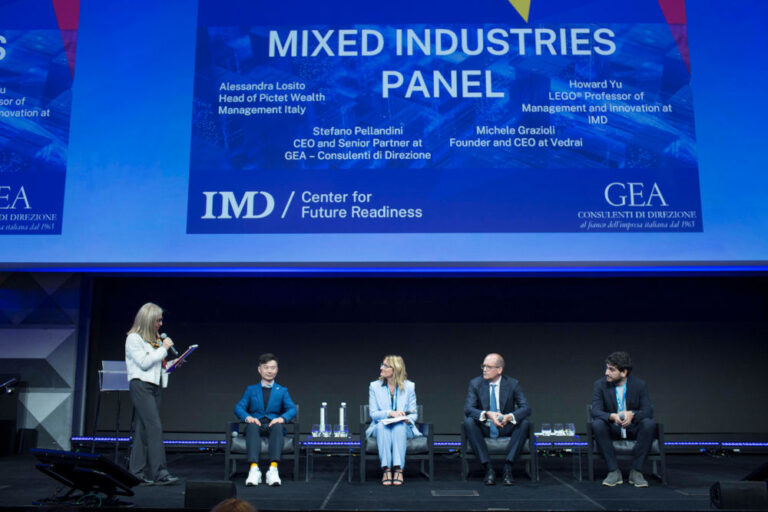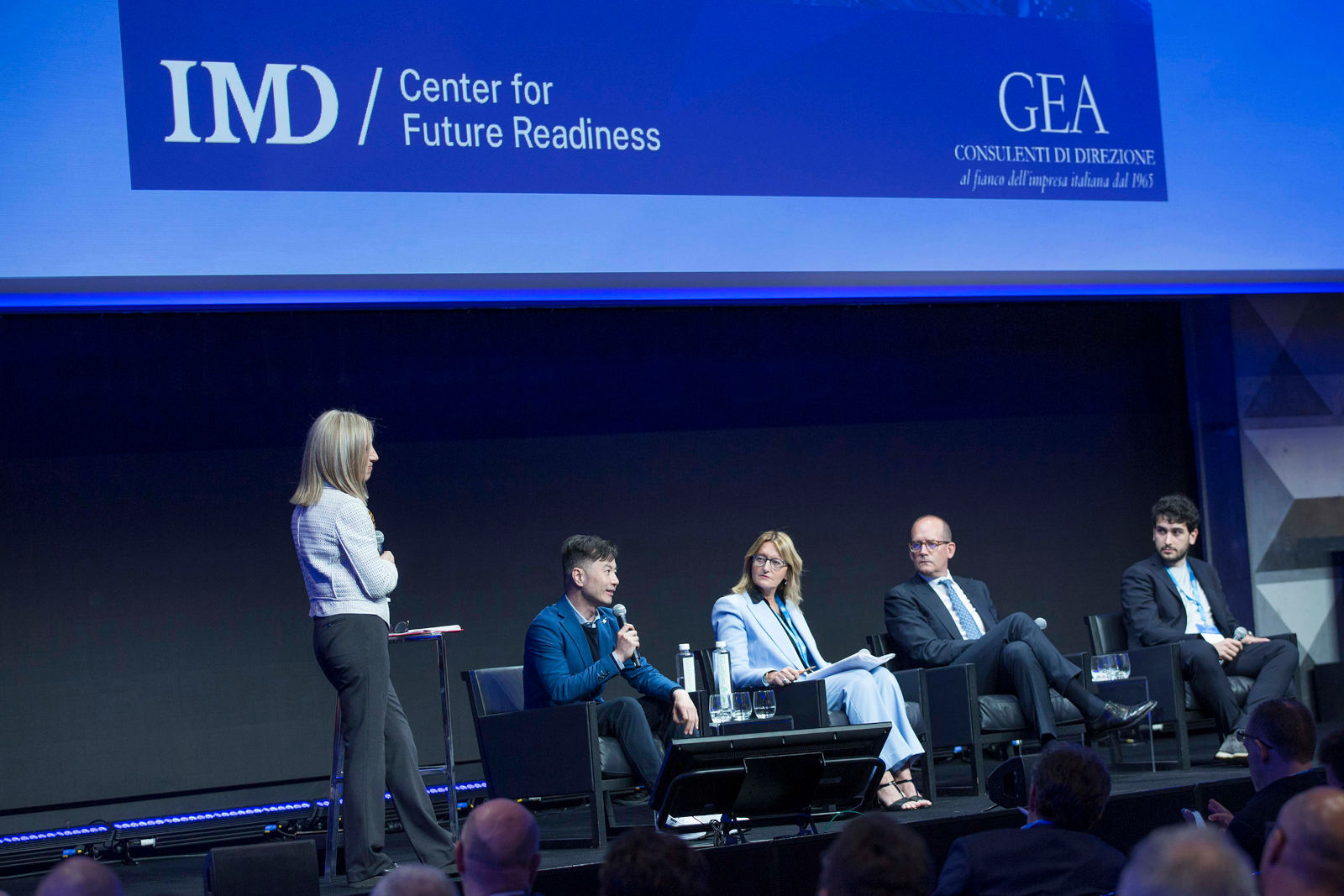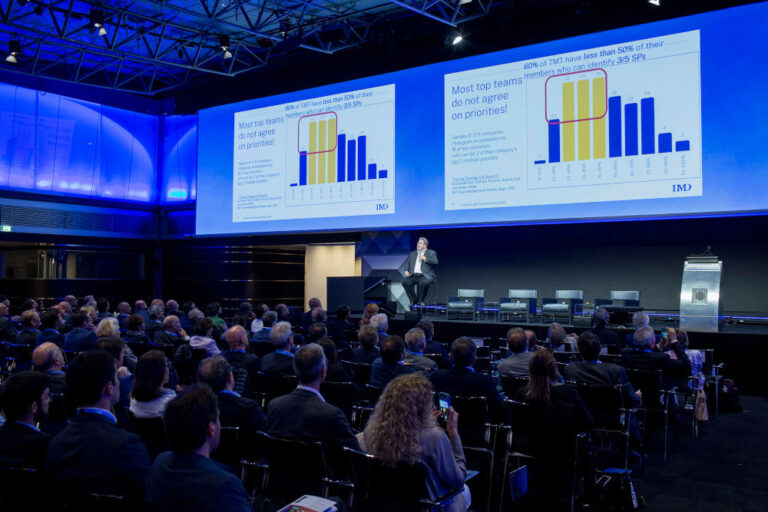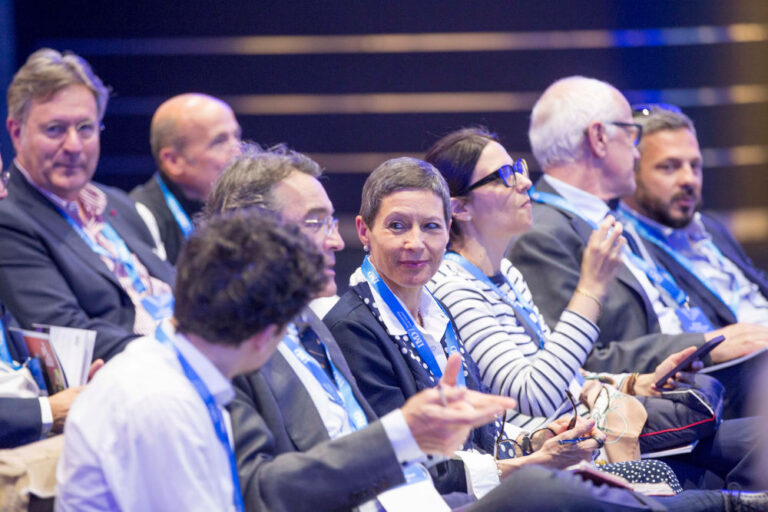How do companies stay on top of the competition in the long run? Not just over one quarter or one year, but over decades? This was the topic under this discussion at this year’s IMD Global Future Readiness Forum held in Milan in partnership with GEA – Consulenti di Direzione.
“Every organization wants to become future-ready. The trick is you need to perform and deliver results every day while transforming so that you win tomorrow,” said Howard Yu, LEGO® Professor of Management and Innovation.
Unveiling the latest results from IMD’s Future Readiness Indicator, which showcases the world’s top automotive, financial, and consumer packaged goods companies, Yu noted that organizations that sustain their advantage are those that consistently scale up new capabilities.
Tesla, for example, held onto the top spot in the automotive ranking, but the results found the once-undisputed king of the electric vehicle market was coming under pressure from competitors.

“Future readiness is always a work in progress,” said Yu. “It’s a game of inches. If you don’t advance, others will catch up. To be relentless, you need to stay focused. That’s the lesson learned from Elon Musk.”
The top financial services companies, Mastercard and Visa, illustrate the importance of forming strategic partnerships to stay ahead of competitors while L’Oréal’s ability to innovate by embracing technology to develop personalized skincare products has helped it move to the top of the leaderboard for consumer packaged goods.
Mindfulness is a superpower of future-ready leaders
Behind every future-ready company are leaders who have the skills to deliver near-term results, while setting their organizations up for success in the long run. This might sound easy on paper, but in practice this is hard to achieve, undermined often by a lack of urgency, a lack of energy and resources, and a lack of focus, said IMD President Jean-François Manzoni.
So, what are the skills that set future-ready leaders apart?
Manzoni believes that, beyond the important strategic domain, future-ready leaders display important qualities on the inter- and intra-personal fronts. Specifically, making sure your top management team is aligned and managing yourself for high performance, which encompasses everything from getting enough sleep to developing ambidexterity and practicing mindfulness.
“We believe that future-ready leaders must develop their ability to be present here and now. Why? Because if you are not present here and now, the habit wins,” said Manzoni.
Monitoring megatrends, harnessing technology, and staying agile
In a series of deep-dive panels, industry experts from finance, tech, and luxury goods companies shared insights on what they believe future-ready companies get right.
Alessandra Losito, Head of Pictet Wealth Management, Italy, emphasized the importance of identifying and aligning with megatrends. Founded 200 years ago, Pictet launched its first biotech and water fund in the 1990s. Key megatrends today include cybersecurity, AI, health, generational shifts, and geopolitical tensions, she said. Part of the strategy of Pictet, which manages $700bn worldwide, is to continuously review these trends with large teams and innovate by combining different megatrends.
Stefano Pellandini, CEO and Senior Partner at GEA – Consulenti di Direzione, highlighted the need for Italian companies to shift to a dual approach for portfolio planning. Put simply, this involves executing in the short term while exploring new opportunities for the future, and, crucially, identifying which ones to abandon and which ones to pursue.
Michele Grazioli, Founder and CEO of Vedrai, noted that over half of the technology used today wasn’t available when the company was founded in May 2020. He stressed the importance of clear goals and a “top-down approach” to break them into intermediate targets. “Harnessing technology is vital to make informed decisions,” he explained. “What we need is the information on whether it’s better to turn right or left.”
Balancing heritage and innovation
In a special panel on the luxury industries, Stéphane JG Girod, IMD Professor of Strategy and Organizational Innovation, said luxury brands aiming to be future-ready must reconcile the competing demands of heritage and innovation, mystique and transparency, control, and collaboration, physical and digital, and global and local.
“As brands break sales records, complacency could become their worst enemy,” he added. “They must not be caught off guard and neglect the pressing need to transform for positive impact and sustainability. To do so, they need to shift their mindset from risk avoidance to opportunity creation.”
Jerome Favier, CEO at the Italian jewelry brand Damiani Group, added that authenticity, agility, and the ability to move fast are “big assets” in a constantly changing world.
“While future-readiness is inherently about progression, organizations don’t need to make radical leaps to stay ahead,” he said. “Instead, it comes down to consistently taking small steps forward.”
“You do not need to become Tesla to survive or even prosper,” added Yu. “You just need to stay one inch ahead of your competitors. Stay on course, persist, and inches will compound to miles ahead.”






